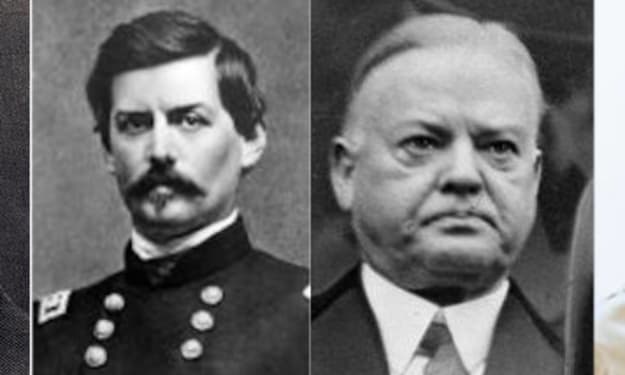What to Call George Washington
How About "His Mightiness?"

No one ever really knew what to call George Washington.
During the Revolution, the British refused to address him as anything other than “Mr. Washington,” as if he were some kind of accounting clerk instead of the commander of an army that, from time to time, gave the world’s foremost military power a whupping.
The British insistence on not using the word “general” in reference to their adversary persisted all the way to their surrender at Yorktown, where the British officer tasked to hand over his sword tried to give it to the French commander instead. Marshal Rochambeau pointed to Washington, who, meeting the British on their terms, pointed at his subordinate, a general named—interestingly enough--Lincoln.
After the surrender, Washington hosted a dinner for the British, French and American officers. The British were impressed by the civility of the Americans and the French, and even referred to Washington as “general.”
Finally.
But Washington’s troubles with titles were far from over.
After his inauguration as America’s first president, the shiny new Congress of the United States worked themselves into a tizzy over how to address him. He had been referred to as “Excellency” by his officers and men during the Revolution, but that smacked of a title of nobility.
Others in the Senate argued that the mere title of “President” sounded too ordinary. John Adams, presiding over the Senate as Vice President, with his eye on the top job, agreed, saying that there were “presidents of fire companies and cricket clubs.” He argued for more grandiose titles like “His Excellency,” “His Elective Majesty” and “His Mightiness.”
Starting its grand tradition of problem-solving, the Senate appointed a committee to study the issue of what to call the President. The committee reported back that the title should be “His Highness the President of the United States of America and Protector of the Rights of Same.”
Well. THAT was a bit much.
Thomas Jefferson wrote from Paris that the Senate’s proposed title was “the most superlatively ridiculous thing” he had ever heard of.
Vice President Adams didn’t think so. He believed that grand titles appealed to human nature, and would help shore up the stature of the infant Republic. Problem was, Adams himself had a reputation for vanity, and many in the Senate believed he was pushing hard for a royal-esque title that he would one day have for himself.
James Madison said, “The more simple, the more republican we are in our manners, the more national dignity we will have.” This sentiment pretty well captured the mood of the country at the time.
Senator William Maclay, who kept a journal of the proceedings, argued that the Constitution itself provided the answer: “No title of nobility shall be granted by the United States.”
But the new Vice President wouldn’t budge, lecturing the Senate about the importance of a grand title for the Chief Executive. One Senator suggested that Adams be referred to as “His Rotundity,” a name that unfortunately stuck. Adams’ role in the naming debate did not help his reputation, to say the least. He was perceived as a vain monarchist, and the Congress relieved the boredom of the debate by having some fun at his expense.
While the Vice President was haranguing them from his chair like the tightly-wound schoolmaster he had been in his younger days, Representative John Page of Virginia wrote a little ditty:
“In gravity clad, he has nought in his head, but visions of nobles and kings.”
Thomas Tucker of South Carolina did one better, writing an entire poem:
“I’ll tell in a trice,
‘Tis old Daddy Vice
Who carries of pride an ass-load;
Who turns up his nose,
Wherever he goes,
With vanity swelled like a toad.”
Much like the British during the war, the question of titles was blown way out of proportion, and went on far too long without resolution until the House and Senate voted.
Their decision?
“Mr. President.”
About the Creator
Stacey Roberts
Stacey Roberts is an author and history nerd who delights in the stories we never learned about in school. He is the author of the Trailer Trash With a Girl's Name series of books and the creator of the History's Trainwrecks podcast.






Comments
There are no comments for this story
Be the first to respond and start the conversation.